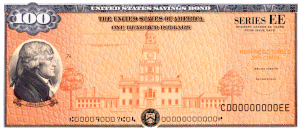Bonds, Debt
What are Bonds?
A Bond is similar to an IOU. When you purchase a bond you
are lending money to the issuer for a specific period of
time at an agreed upon interest rate. You typically receive
interest payments during the duration of the loan and then
you will get back your principal at the end of the loan term.
You as the investor can purchase a bond from the
government or from a company. A big point to remember is
the riskier the loan the higher the interest it will pay, but the
risk of never getting paid back is higher. For example, when
Tesla announces they will be raising capital through a debt offering all that means is they need to borrow money and will issue bonds to the public. Tesla's bonds are considered high risk so they might offer an 8-year bond and pay 6% interest. If Tesla runs out of cash and files for bankruptcy there is a real chance you will not get paid back.
When the US Government issues Treasurys to raise cash and keep the government funded, they are able to do so at much lower interest rates. This is because the US Government is considered a risk free borrower meaning there is no chance they will not pay you back. An example would be purchasing a 10-year treasury note for $10,000. You are lending the government $10,000 for 10 years. In return, you will receive around 3% interest per year ($300) and then at the end of the 10-year term, you will receive your $10,000 back. This is a very simple but real example.
After the initial issue of a bond, they are then traded on a secondary market. This makes it possible for you to sell your bond before the end of the term. For example, if you wanted to sell your Telsa bond after 1 year you would be able to do so in the secondary market. The amount you would be able to sell your bond for depends on many factors like Tesla's financial condition and the current interest rate environment.
To wrap this up Bond offerings are how companies and governments raise cash. The Bond Market is tremendous in size. Almost double the size of the stock market. The secondary market is where bonds are traded after they have been issued.



